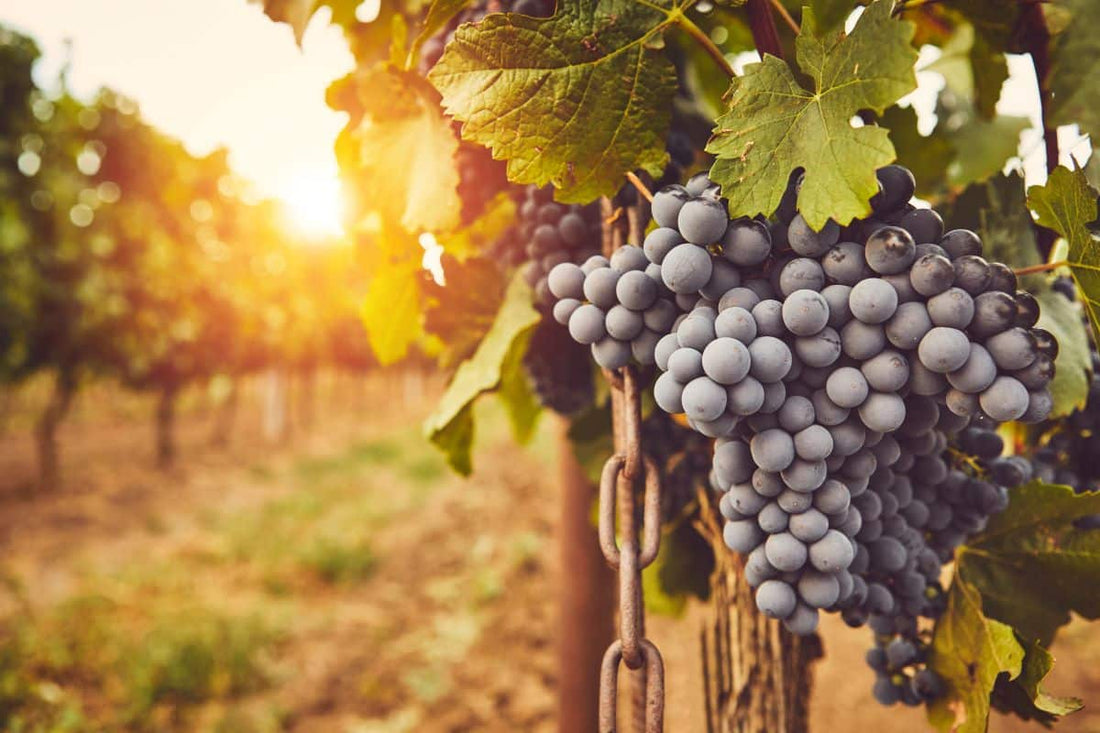Whether they are organic, natural or bio-dynamic, eco-responsible or non-conventional wines are becoming increasingly popular in Quebec. These names are everywhere: in the press, on television or at your local wine shop. It's not always easy to know what they mean.
In this quick guide, our experts help you clearly understand the differences between organic wine and natural wine.
What is organic wine?
Organic wine follows the principles of organic agriculture both in the vineyard and during its vinification.
When a wine produced in Quebec is labeled "organic", it means that it meets the quality control standards of a certification organization such as EcoCert Canada or Québec Vrai. The various standards surrounding organic wines generally ensure that the vineyard is cultivated without chemicals following these standards: zero pesticides, zero herbicides and zero synthetic fertilizers.
It should be noted that a Bordeaux mixture, which is made from copper sulfate and lime, is authorized in organic agriculture to fight against the appearance of fungi. Winegrowers are also allowed to add sulfites in limited quantities (5 mg/L maximum) to ensure the proper conservation and storage of the wine.
Some examples of organic vineyards in Quebec
The Négondos vineyard, located in the Laurentian region, is considered to be the first organic vineyard in Quebec. Several other vineyards have also gone organic such as Clos Saragnat, Les Pervenches, Pigeon Hill, La Seigneurie de Liret and Le Domaine de Bergeville.

What is natural wine?
Natural wines are mainly wines resulting from a vinification process known as "non-interventionist". This means that a minimum of interventions has taken place in all stages of its vinification.
The objective is that as few elements as possible are added or removed from the grape juice.
The yeasts used for a natural wine are natural. They are mainly already present on the outer skin of the grape. As for the amount of sulfite, it is minimal (up to 30 mg/L maximum).
Natural wines are also free of any filtration process, which gives them their cloudy appearance in the wine glass and can generate a small deposit in the bottle. The result is a wine that is free of any artificial additives and produced with the utmost respect for the earth.
It is important to know that currently, the term of natural wine is not regulated. There are no official specifications or certification.
Vinum Design, specialist in wine and spirits accessories
What are the differences between an organic wine and a natural wine? Organic wines are subject to a certification that attests that the winemaker follows the principles of organic farming both in the vineyard and in the cellar.
For natural wines, it is more precisely a philosophy that consists in limiting the interventions in the winemaking process to a minimum.
At Vinum Design, we offer a wide range of wine accessories so that all wine lovers can live their passion to the fullest.
From Zalto glasses to corkscrews and even wine cellars, find everything you need on our online shop or in one of our stores.




